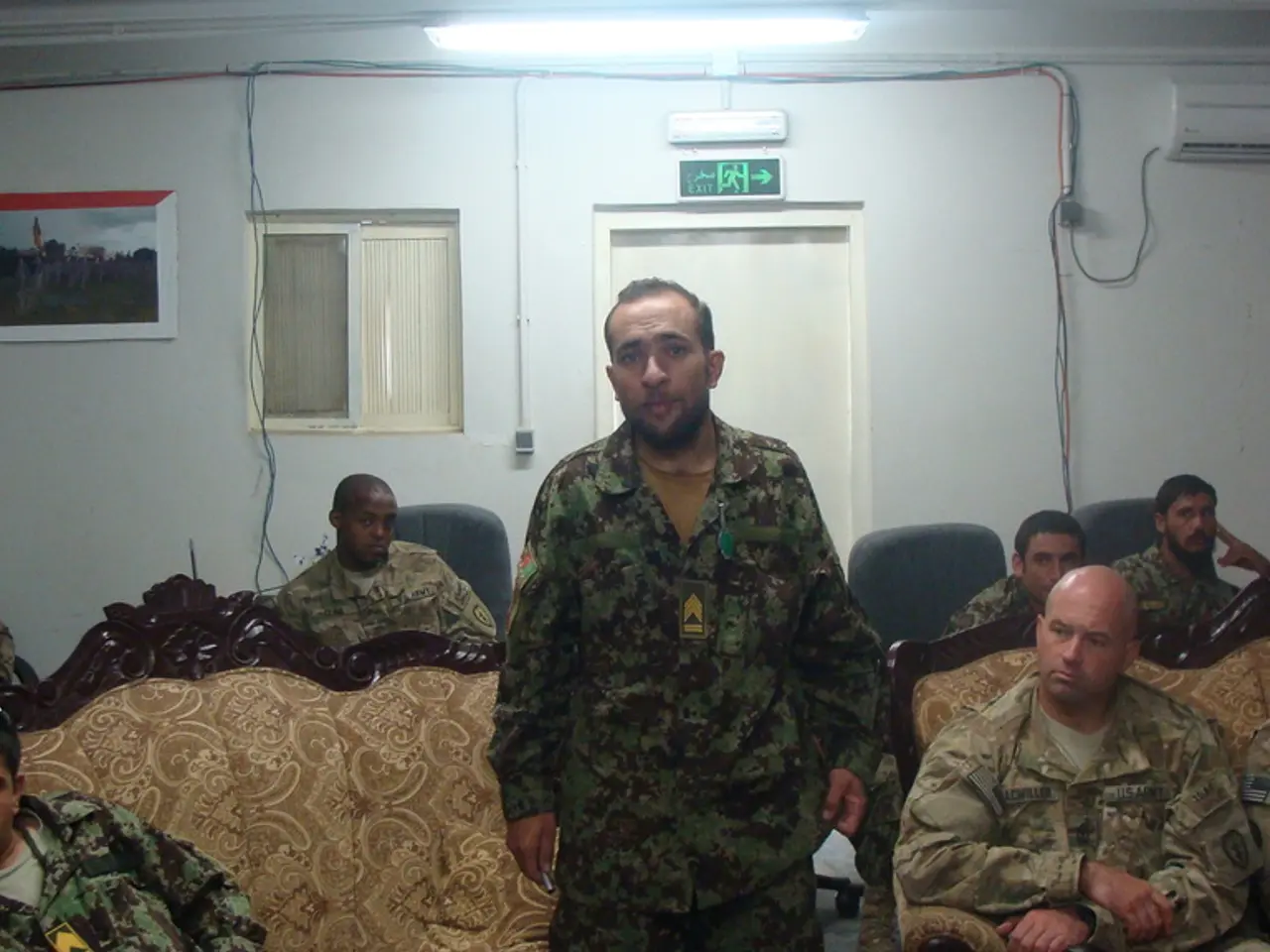Dissecting the Klishas-Krasninikov Law and its Impact on Yakutia's Local Governance
Reduction in Leadership Positions: Yakutia to Cut Down on Heads and Deputies.
Platforms:* VKontakte* Classmates* WhatsApp* Telegram* Twitter
YAKUTIA.INFO. Since our focus has been on Michigan's election drama, let's shift gears and address the legislative upheaval happening in the domestic landscape of Yakutia. The State Duma is mulling over the "Klishas-Krasninikov" law in the second reading, a legislation that could shake up the structuring of communal administration in Yakutia's districts. As of October 22, the stage for regional amendments has closed, and the evaluation of suggestions has commenced.
One of the crucial figures involved in this discussion is Alexei Eremeev, chair of the Yakut State Assembly. Eremeev jetted off to Moscow to meet with Senator Andrey Klishas, and though the details of their conversation remain hush-hush, Eremeev casted assuredness over Yakutia's amendments being taken into account.
The underlying gist of these amendments is relatively straightforward—clarifying roles, responsibilities, and rights. However, that isn't the crux of the matter.
To offer a plain analogy of the situation, consider the repercussions of centralizing authority in district centers. This could result in fewer costs for parasitic expenses and more resources reserved for large projects like road pavement. A centrally-managed system minimizes redundancies and confusion caused by overlapping district and local responsibilities. Nonetheless, there may be potential pitfalls—power will become remote, and settlers will likely have to journey to the district centers to resolve local issues. Moreover, the settlements risk being underfunded, which might lead to adverse consequences for Yakutian communities. It boils down to the people deciding what is ideal for their unique circumstances. Nevertheless, our republican authorities seem eager to skirt around local self-governance and merge municipalities into districts, even if the law doesn’t mandate it. This appears to be a convenient choice, as it bypasses the need to manage multiple autonomous regions, immerse in local specificities, or maintain the traditions of individual settlements.
Opposition deputy Vladimir Poskachin, also the head of the Yakut opposition stronghold "Somoҕo kүüs,” shed light on this rule-changing bill in recent weeks.
This proposed law bears significance—it goes beyond sheltering the institution of local self-governance, but also affects the very heart of the Yakutian village, and thereby, the demographics that shape the republic's future.
The present-day Yakutian authority is misleading concerning this regulation, affirmed Poskachev. For further reading on contentious statements, click here.
Poskachev’s opposition advocates for the establishment of as many municipal districts at the level of naslegs/selovet as the populace deems appropriate, especially in locations where robust traditions of self-government prevail and the geography justifies it.
Many local representatives from the lower tier of self-government at the level of naslegs and selovet have voiced criticism of the reform. By December 31, 2027, they need to decide whether to function independent of district self-government or become independent municipal districts. However, the key question remains—do they have the literacy, self-awareness, and motivation to manage their own budgets and administrative duties?
Tags:* State Assembly of the Republic of Sakha (Yakutia)* local self-government* Alexei Eremeev* Andrey Klishas* Andrey Klishas and Pavel Krashennikov* Klishas-Krashennikov
Stay connected through WhatsApp Join our Telegram channel*
Understanding the Klishas-Krasninikov Law:
The "Klishas-Krasninikov" law is a severe proposal to revamp local self-government structures in Russia at both federal and regional levels, centralizing authority and restricting the autonomy of municipal governments. The initiative is the brainchild of Senator Andrey Klishas and State Duma Deputy Ivan Krasninikov.
The law is contentious across Russian regions, with concerns over reduced local autonomy, erosion of municipal democracy, and potential adverse effects on indigenous and rural communities similar to those in Yakutia. This complex piece of legislation redefines local government structures, posing both opportunities and challenges for efficient governance.
Go back to the original articleBack to the discussion prompts
- "The Klishas-Krasninikov law, currently under consideration in the State Duma, falls under the category of policy-and-legislation and is a significant piece of politically charged general news, as it could impact Yakutia's local governance by altering communal administration structures."
- "Opposition deputy Vladimir Poskachin, the head of the Yakut opposition stronghold 'Somoҕo kүüs,' has vocalized concerns about the Klishas-Krasninikov law, stating that it goes beyond sheltering the institution of local self-governance and potentially affects the very heart of Yakutian villages, shaping the republic's future demographics."







